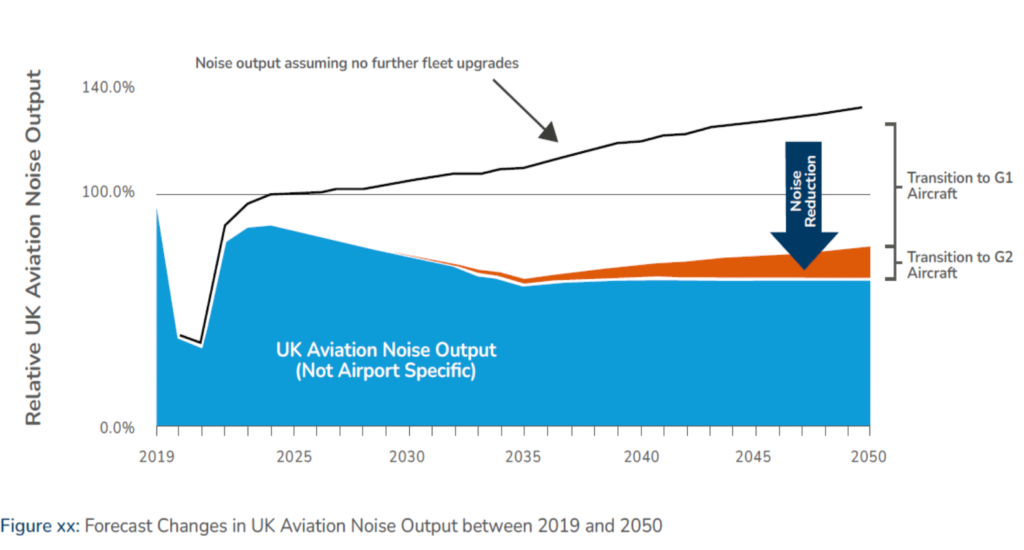Sustainable Aviation publishes Noise Road-Map showing how latest-generation aircraft will significantly reduce aviation noise in the UK
- UK aviation noise output is forecast to reduce by 35% in 2035 compared to 2019, despite a rise in air traffic movements.
- Each new aircraft is quieter, and more fuel efficient, than the one it replaces
- Latest-generation aircraft demonstrate up to 50% noise reduction compared to the ‘Legacy’ aircraft they are now replacing
- Continued noise research by UK industry, supported by government, can ensure this trend continues from the mid-2030’s onwards
Today, at the UK aviation industry has published its latest Noise Road-Map showing how UK aviation noise output is forecast to reduce by 35% in 2035 compared to 2019, even as the UK aviation sector continues to grow.

These figures present a UK wide result – actual noise exposure at individual UK airports will vary locally depending on factors like operating restrictions, land-use planning and the scope for adopting new operational procedures, and so this Road-Map is not a projection of future noise at any specific UK airport.
However, it shows the clear direction of travel with technological innovation reducing the overall impact of aviation noise even as more passengers and freight are flown, delivering significant economic benefits to UK Plc.
Beyond 2035, continued noise reduction will require the introduction of the next generation of airframe and engine design, and so manufacturers are engaged in extensive noise research programmes. To continue to deliver these reductions, industry urges government to:
- Continue its support for research and development in aerospace technology
- Accelerate the airspace modernisation programme to deliver noise and carbon savings
- Tackle unrestricted housing growth under flight paths – the main potential factor increasing the number of people affected by noise outside of aviation growth – by supporting local authorities’ ability to enforce land use planning controls around airports
Sustainable Aviation CEO Duncan McCourt said:
Each new aircraft is quieter, and more fuel efficient, than the one it replaces. These technology improvements are forecast to reduce the overall noise created by aviation in the UK by a third over the next ten years.
It is incumbent on each airport to manage and mitigate its own noise impacts, but this research shows that overall UK aviation is getting quieter, while delivering more economic and social benefit to the UK.
View the full report here.
